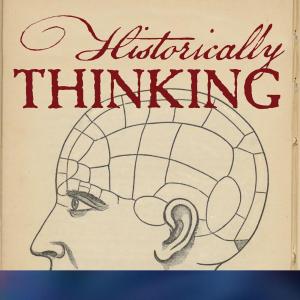Historically Thinking

Episode 328: Making Medieval Money
In the early 11th century, an English monk wrote an imaginary conversation between two men haggling over the price of a book. After finally agreeing to a price, they then “needed to establish what means of payment would be used, and the buyer reeled off a daunting list of thirteen possible ways of settling the transaction, ranging from gold and silver to beans, clothing, and goats.” But in the end the seller wants to be paid in coin for, he says, “he who has coins or silver can get everything he wants.” But those fictitious monks lived in a time of coin scarcity. Indeed, for about seven centuries–between the end of the western Roman Empire in the fifth century, and the economic growth of the twelfth, coins were in short supply. Yet nevertheless, argues my guest Rory Naismith, people found coins important because they established a means of “articulating people's place in economic and social structure.” Medieval money, and the making of it, turns out to be a point of contact between economic, social, and institutional history. Why? Because making money is also about making meaning. Rory Naismith is Professor of early medieval English history at the University of Cambridge, and a fellow of Corpus Christi. Among his previous books are Money and Power in Anglo-Saxon England: The Southern English Kingdoms, 757-865. His most recent book is Making Money in the Early Middle Ages, which is the subject of our conversation today. For Further Investigation We've talked about coins before, and their use as historical evidence, in Episode 217 with Frank Holt–which turns out to be a pretty good introduction to this conversation with Rory Naismith. As regular listeners know, I like talking about credit, and money. Past conversations about credit include Episode 218, with Sara Damiano about women's use of credit in early America. I talked about banking in the early American republic with Sharon Ann Murphy. And while our conversation wasn't focused on credit or banking, Rowan Dorin and I did talk a lot about both in Episode 304. Rory Naismith writes: "I'd urge listeners to spend some time with the Portable Antiquities Scheme and the Corpus of Early Medieval Coin Finds. For reading, the classic overview (other than my new book!) is Peter Spufford, Money and its Use in Medieval Europe; also very good for what comes next in the story is Jim Bolton, Money in the Medieval English Economy. A very good survey of the wider historical picture in the early period is Chris Wickham, The Inheritance of Rome."






 Visit Podcast Website
Visit Podcast Website RSS Podcast Feed
RSS Podcast Feed Subscribe
Subscribe
 Add to MyCast
Add to MyCast